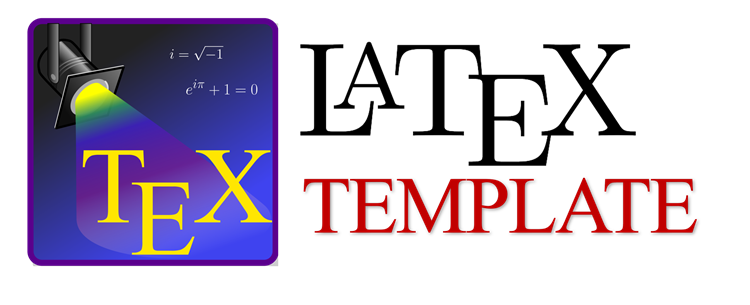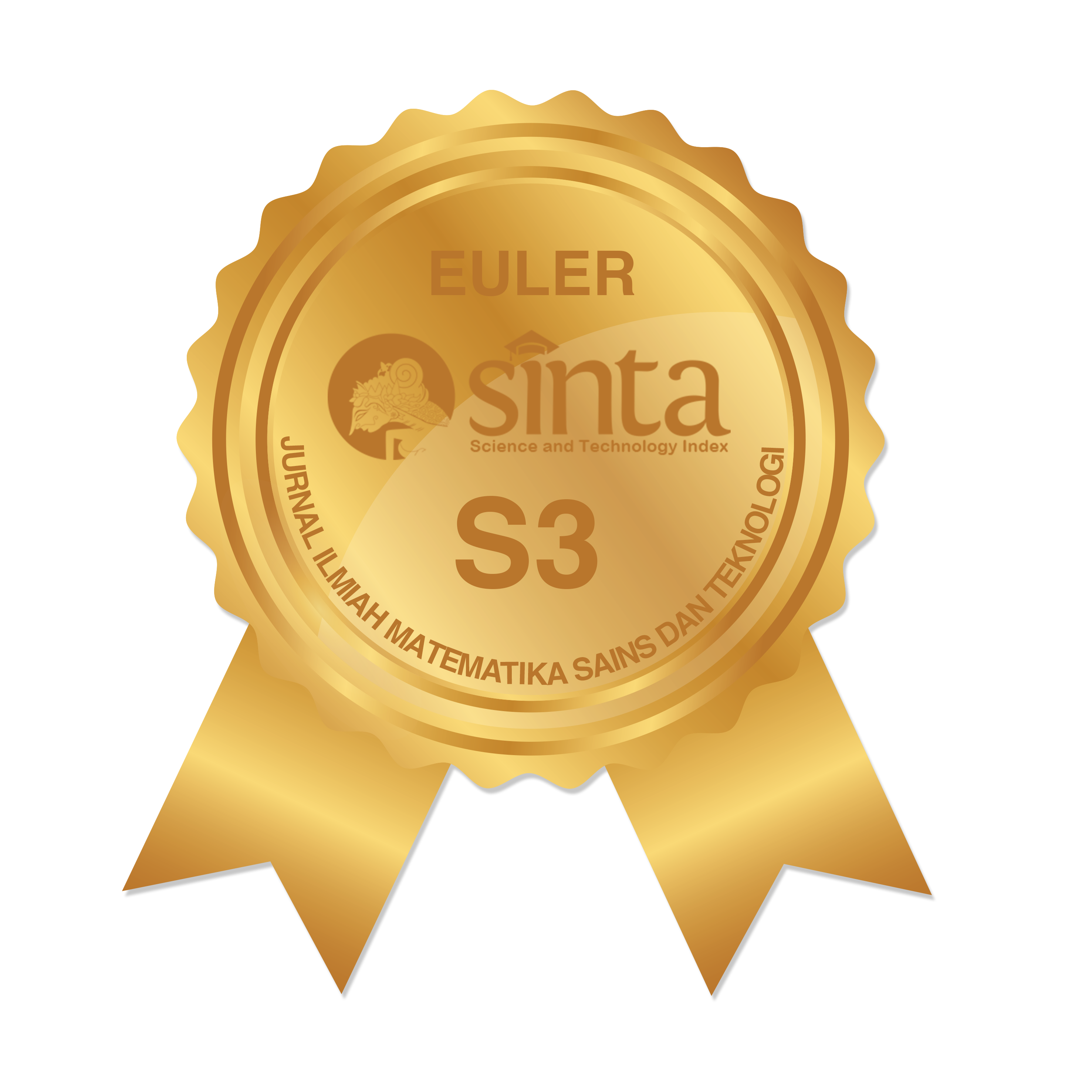Model Problem Based Learning: Efektivitasnya Dalam Meningkatkan Hasil Belajar Sistem Persamaan Linear Dua Variabel
Abstract
Keywords
Full Text:
PDFReferences
A.W. Abdullah, D.R. Isa, and N. F. Podungge, "Analisis Hasil Balajar Matematika Siswa Pada Materi Matriks Melalui Pembelajaran Berbasis E-Learning" Euler J. Ilm. Mat. Sains dan Teknol., vol. 9, no. 1, pp. 1-5, Jun. 2021, doi: https://doi.org/10.34312/euler.v9i1.10325.
R. Suna, A. D. Mohidin, N. Katili, A.W. Abdullah, and M. Majid, "Pengaruh Model Pembelajaran Problem-Solving Terhadap Kemampuan Berpikir Kreatif Siswa Pada Materi Pola Bilangan" Res. Math. Nat. Sci., vol. 1, no. 2, pp. 43-51, Oct. 2022, doi: https://doi.org/10.55657/rmns.v1i2.68
P. Usman, L. Yahya, N. Bito, and B. R. Takaendengan, "Efektivitas Pembelajaran Matematika Menggunakan Multimedia Pada Materi Kerucut" Jambura J. Math. Educ., vol. 3, no. 2, pp. 100-106, Sep. 2022, doi: 10.34312/jmathedu.v3i2.10628
R. Jupri, P. Zakaria, M. Majid, R. Resmawan, and D. R. Isa, "Pengaruh Model Pembelajaran Quantum Teaching Terhadap Hasil Belajar Siswa Pada Materi Operasi Himpunan" Euler J. Ilm. Mat. Sains dan Teknol., vol. 10, no. 2, pp. 274-281, Dec. 2022, doi: 10.34312/euler.v10i2.16940
I. Ayuwanti, "Meningkatkan Aktivitas dan Hasil Belajar Matematika Menggunakan Model Pembelajaran Kooperatif Tipe Group Investigation di SMK Tuma'ninah Yasin Metro" SAP (Susunan Artik. Pendidikan)., vol. 1, no. 2, pp. 105-114, Jan. 2017, doi: https://dx.doi.org/10.30998/sap.v1i2.1017
G. Polontalo, R. Resmawan, S. Zakiyah, and A. W. Abdullah, "Dampak Model Pembelajaran Contextual Teaching and Learning Terhadap Kemampuan Pemahaman Konsep Matematis Siswa Pada Materi Segiempat" Jambura J. Math. Educ., vol. 4, no. 1, pp. 50-62, 2023, doi: https://doi.org/10.34312/jmathedu.v4i1.16766
H. A. Kue, S. Q. Badu, R. Resmawan, and S. Zakiyah, "Deskripsi Hasil Belajar Matematika Siswa Di SMP Muhammadiyah Tolangohula" Res. Math. Nat. Sci., vol. 1, no. 2, pp. 43-51, Oct. 2022, doi: https://doi.org/10.55657/rmns.v1i1.8
M. Gompi, N. Bito, and D.R. Isa, "Pengaruh Model Pembelajaran Student Facilitator and Explaining Terhadap Hasil Belajar Siswa Pada Materi Bentuk Aljabar" Jurnal Cendekia: Jurnal Pendidikan Matematika., vol. 06, no. 03, pp. 3287-3295, Aug 2022.
N. Baid, E. Hulukati, K. Usman, and S. Zakiyah, "Penerapan Model Pembelajaran Talking Stick Untuk Meningkatkan Hasil Belajar Matematika Siswa Pada Materi Aritmetika Sosial" Euler J. Ilm. Mat. Sains dan Teknol., vol. 10, no. 2, pp. 164-172, Dec. 2022, doi: 10.34312/euler.v10i2.16342
M. Marwiyah, A. Alauddin, dan M. K. Ummah, Perencanaan pembelajaran kontemporer Berbasis Penerapan Kurikulum 2013, Yogyakarta: CV. Budi Utama, 2018.
S. Sukmawarti, H. Hidayat, and O. Liliani, "Implementasi Model Pembelajaran Berbasis Masalah untuk Meningkatkan Kemampuan Pemecahan Masalah Matematika Siswa SD" Jurnal Pendidikan Dan Konseling (JPDK)., vol. 4, no. 4, pp. 886-894, 2022, doi: https://doi.org/10.31004/jpdk.v4i4.5345
R. fitri, H. Mustika, and I. F. Aprilian, "Efektivitas Model Problem Based Learning Berbantuan Video Pembelajaran terhadap Peningkatan Pemahaman Konsep Matematika Siswa Kelas XI MA" Jurnal Equation: Teori dan Penelitian Pendidikan Matematika., vol. 5, no. 1, pp. 79-91, 2022, doi: http://dx.doi.org/10.29300/equation.v5i1.6385.
I. G. A. P. Sriwati, "Penerapan Model Pembelajaran Problem Based Learning Untuk Meningkatkan Hasil Belajar Matematika Siswa" Indonesian Journal of Educational Development., vol. 2, no. 2, pp. 302-313, Aug. 2021, doi: https://doi.org/10.5281/zenodo.5244635.
I. Ramadhan, H. Wiyono, N. M. Adlika, H. Firmansyah and J. Budiman, Kiat Sukses PTK Langkah-langkah Instrumen dan Contoh. Klaten : Lakeisha, 2021.
D. D. Unaradjan, Metode Penelitian Kuantitatif. Jakarta: Universitas Katolik Indonesia Atma Jaya, 2019.
A. Rukajat, Pendekatan Penelitian Kuantitatif: Quantitative Research Approach. Yogyakarta: Deepublish, 2018.
DOI: https://doi.org/10.34312/euler.v11i1.18387
Refbacks
- There are currently no refbacks.
Copyright (c) 2023 Hendro Budi Santoso, Lailany Yahya, Dewi Rahmawaty Isa

This work is licensed under a Creative Commons Attribution-NonCommercial 4.0 International License.
Euler : Jurnal Ilmiah Matematika, Sains dan Teknologi has been indexed by:
EDITORIAL OFFICE OF EULER : JURNAL ILMIAH MATEMATIKA, SAINS, DAN TEKNOLOGI |
 | Department of Mathematics, Faculty of Mathematics and Natural Science, Universitas Negeri Gorontalo Jl. Prof. Dr. Ing. B. J. Habibie, Tilongkabila, Kabupaten Bone Bolango 96554, Gorontalo, Indonesia |
 | Email: [email protected] |
 | +6287777-586462 (WhatsApp Only) |
 | Euler : Jurnal Ilmiah Matematika, Sains dan Teknologi (p-ISSN: 2087-9393 | e-ISSN:2776-3706) by Department of Mathematics Universitas Negeri Gorontalo is licensed under a Creative Commons Attribution-NonCommercial 4.0 International License. Powered by Public Knowledge Project OJS. |














